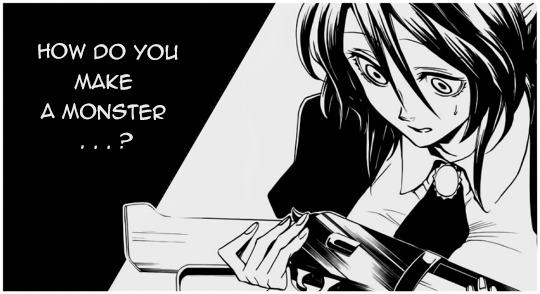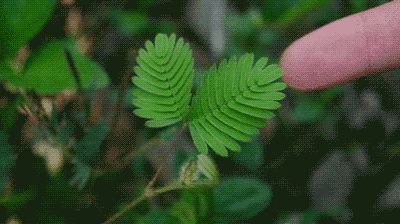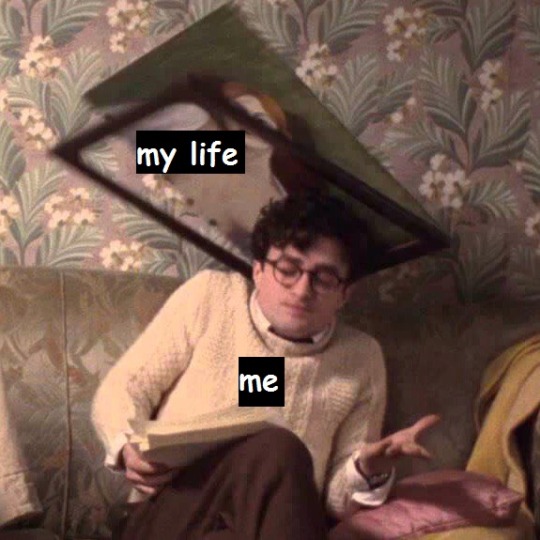I'm beginner in art, and sleeping is my main hobby! Chi~
Don't wanna be here? Send us removal request.
Photo


my piece for the @farewellzine :)
Based on Maëlle’s amazing fic!!!
1K notes
·
View notes
Note
I have a theory, for expanding spirit. In the Loke arc, Loke talked about stars falling from heaven and never returning, what if he was referring to himself. If he had died, then his constellation would have disappeared making it 87 heavenly bodies. The way it was talked about made it seem like it wasn't a first time occurrence either, who knows how many spirits have died and possibly gone to Celestial Spirit Hell. It possible that despite losing their keys, a skilled mage can remake them.
Oh yeah, he was definitely talking about himself there. He never actually lied to Lucy except when he told her he was lying.
I kind of wonder what happens when a spirit dies, though. Does a new spirit take their place, or would a brand new Leo have spawned to replace Loke?
25 notes
·
View notes
Photo





Please reblog if you know anyone who might take party drugs.
697K notes
·
View notes
Photo



“Does your family know that you will kill them all?”
2K notes
·
View notes
Note
is it possible that plants have consciousness?
this is actually a small sub branch of botany thats been growing and gaining some recognition in the past 5 years or so called plant cognition! we’ve been thinking about if plants can possibly be intelligent to any degree for centuries, but the main paper that started up this huge discussion in the modern era was one called Experience Teaches Plants to Learn Faster and Forget Slower in Environments Where It Matters by Monica Gagliano, a plant researcher in Australia who specializes in it. because the results indicated that plants were possible of learning and retaining information in a kind of memory in response to environmental changes, it received a lot of backlash and denial- generally in science, that kind of intelligent reaction to an organism’s environment is a good indicator of cognitive behavior in the organism. it got rejected by 10 different journals before being published in 2014.
the experiment worked like this. i’ve talked before about mimosa pudica, a tropical plant that curls its leaves back when touched (they go back to normal in a few minutes):

this is to help deter predators among other things. but in this experiment, Gagliano used it as an indicator of stimulus and to test cognitive function. It’s well known that pudica has a rudimentary nervous system that can even be temporarily inhibited using anesthetics (just like ours can!). she hooked up a ton of these plants in pots to identical rail systems that allowed them to be lightly dropped in an identical way, juuuuust heavy enough to trigger the stimulus so all the leaves drop down when they hit the bottom (a piece of foam so they wouldn’t actually hurt the plants). every time the plants would be dropped, they would close up.
but after the plants were dropped about 60 times each, they stopped responding to the drop.
they remembered that no harm was coming from this action and decided that it was against their best interests to keep expending energy closing their leaves. they 200% learned to stop.
she decided to test it further. she put some of the plants in a shaker and let them receive a more jarring response; the plants closed up as usual. then, she put them back in the droppers and dropped them again. they didn’t close up. they had remembered that response. this dispels the obvious rebuttal to this experiment of the plants just being tired; they still closed up when stimulated differently.
they just chose not to close up when they hit a stimulus they remembered.
it turns out that not only could they remember to keep their leaves open when dropped on the apparatus, but they remembered after 28 days when she kept testing it!! apparently by the end of the experiment, all the plants had decided to keep their leaves open when dropped!!!!
how do they do this?? we literally dont know. they have no central brain, only a basic nervous system. can other plants do this???
well, adding onto that, venus fly traps can count! like. they have three hairs inside their traps, and all three must be touched within 20 seconds for the trap to close. once closed, those three trigger hairs must continue to be stimulated by thrashing prey, or the trap will reopen.
so yeah like. basically ‘are they sentient’: apparently to an extent???? we dont know exactly why or how but they are??? maybe???? sort of????? at least some of them are?? but they dont have a brain so everyones like????????????????????? maybe its through a signaling network????????????????? but like how would that even work?????????
plant consciousness is still new enough to be dismissed as crazy by a lot of biologists but like. the evidence is there. we don’t know a whole lot and its clearly a radically different kind of intelligence than we know in animals, but it’s there and we 200% dont know how it works yet or even the full extent of how plants use this intelligence (for example: does a redwood have the same intelligence as a venus fly trap?? how does it learn things and use that knowledge???)
national geographic wrote an awesome article visualizing the experiment here if you want to read more!
48K notes
·
View notes
Text
look i’m as absolutely against homophobic tropes as the next person, probably even more so, but like. at the end of the day if every gay character has to be wholesome and unproblematic in order to be a good character gay media is gonna get really bland really fast
i don’t just want “good gay characters/representation” i want a full spectrum of gay characters that encompass even a fraction of the thousands of diverse and complex straight characters in fiction
34K notes
·
View notes













